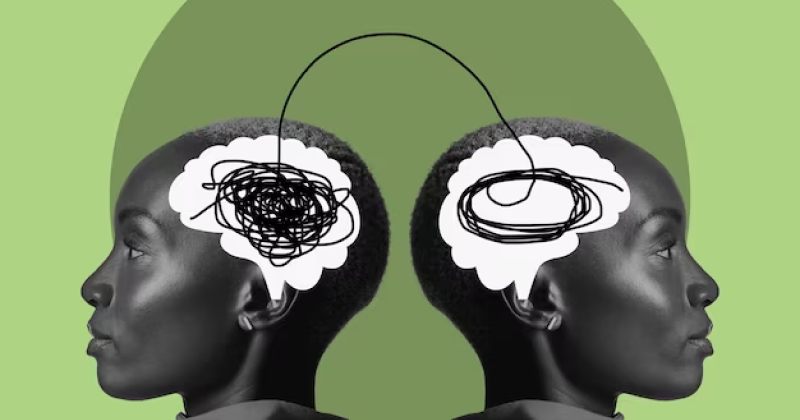
As someone who has been diagnosed with bipolar disorder at the age of eighteen, I can say that Bipolar disorder is one of the most misunderstood of all mental illnesses.
Each person could show different symptoms and experience bipolar disorder differently. That is one of the most essential reasons why bipolar disorder is hard to diagnose.
So psychologists and scientists were trying to take a closer look at this mental disorder. They examined and had interviews with those who were dealing with bipolar disorder.
In the process, they started to think about so many new questions, one of which was: Is there a link between bipolar disorder and intelligence?
In today’s blog, we are going to discuss the connection between bipolar disorder and intelligence and look through some of the best research that has been conducted throughout history.
So, if you are curious about this topic, keep scrolling to find the answer to your questions.
What Is Bipolar Disorder?

Before we speak about how bipolar disorder and intelligence are connected, it is crucial to have a good understanding of what this disorder actually is.
As I said, bipolar disorder is a misunderstood mental illness. Because it is a complex disorder, there have been so many assumptions about it. Does being bipolar mean you are insane? Are bipolar people geniuses?
The truth is bipolar people are ordinary people and not aliens.
Bipolar disorder is a cycle of being highly depressed or hyperactive. It means that their behavior swings from being overjoyed and hyperactive right to the opposite end of drowning in sadness and depression.
Based on my personal experience, I can say that dealing with bipolar is like having no balance in life. You are either so motivated that you can literally move the mountains, or you are so depressed that you can’t even get out of bed.
Constantly going through these changes of moods could be challenging, both for the patients and those around them.
Where Does This Idea Come From?
As James McCabe once said, the idea of bipolar disorder and intelligence being connected to each other goes back to the ancient Greeks when Aristotle wrote about the connection between intelligence and what he used to call madness.
If you look throughout history, you will see countless examples of people who have been mentally unstable and constantly went through episodes of change of mood, but at the same time were very bright and intelligent people.
So, this question arose: is this just a coincidence, or is it scientifically proven that people with bipolar disorder are also high functioning?
What Research Has Been Conducted On This Subject?

James McCabe, curiously, started to compare the school results of millions of students to see their chances of being hospitalized for bipolar disorder.
What he found was quite shocking. Those who had the highest grades at the age of sixteen to eighteen were more likely to develop bipolar disorder as adults than other students.
As he said, the students with the highest scores were considered among the best few brilliant students in the country and the whole world.
Were These Students Good At Certain Subjects?
Of course, a result like this makes you think about what subjects these students were great at.
Researchers looked at the subjects one by one, and they ended up realizing that, generally speaking, those who were more into art, poetry, and humanities subjects and less into mathematical subjects were associated with high intelligence.
What About Those With Lower Grades?
By now, you probably have concluded that only bright students are at risk of bipolar disorder later in life. But it will get more interesting.
The studies showed that students with high grades were also at risk of bipolar disorder. Not as much as the top students, but more than average students.
So, in conclusion, this study showed that both highly intelligent students and those who were lower than average were at risk of bipolar disorder.
Is There A Genetic Reason Behind This?

You should be very curious to see the reason behind this. Let us look at this subject scientifically to see if there’s a genetic connection or if it all depends on the environment in which high-functioning people grow up.
As you can see, bipolar disorder itself is highly dependent on genetics.Those who had parents or relatives struggling with bipolar disorder were more likely to be diagnosed with bipolar disorder. And this genetic risk is something around eighty percent. The rest of it depends on the environment and other factors.
In What Other Ways Could Bipolar Disorder and Intelligence Be Connected?

Besides genetics, some other assumptions that are not scientifically proven tend to tickle our minds.
Intelligent people are more likely to look at things with a deeper perspective; They tend to question everything and want to solve all the problems and this could put them at the risk of depression and even bipolar disorder.
FAQ
Are Only Emotionally Intelligent People At Risk Of Bipolar Disorder?
No, that is not true. Being emotionally intelligent does not set you apart from other people.
Based On Research, Can We Say High IQ Causes Bipolar Disorder?
It has been proven that high intelligence and bipolar disorder are connected in some ways. But that connection is not causative. And that connection is different for everyone. Not all intelligent people have bipolar disorder, and not all bipolar people are smart.
Last Words
We could say that there is a link between bipolar disorder and being highly intelligent. However, it is scientifically proven that this can’t be true for everyone. We can’t say every bipolar individual is intelligent. And also, we can’t conclude that being highly intelligent causes bipolar disorder. Studies show the risk of having bipolar disorder highly depends on genetics, something around eighty percent.
Based on my own experience, bipolar disorder could change your brain functioning. For example, in what we define as a “manic episode,” I feel like my brain is working way faster than usual. On the other hand, in the depression episodes, my brain is like a ghostland.
Remember that high IQ does not cause bipolar disorder. The only reason that scientists tried to find a connection and studied this theory in the first place was to have a better understanding of this disorder and to be somehow able to treat those who could have bipolar disorder later in life or those who are showing early symptoms of bipolar disorder.
